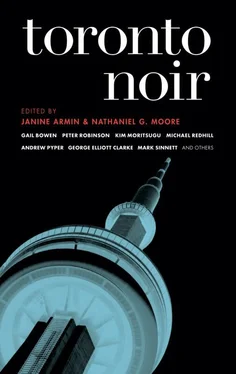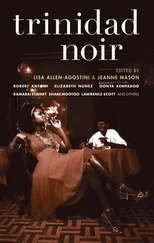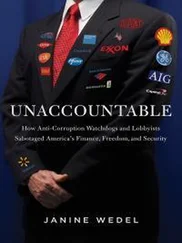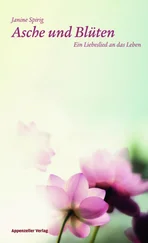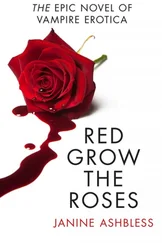K. hates Dufferin Street but is especially distressed by the Dufferin bus, which makes him feel like a homicidal dumpling. One of the most reliable ways to elicit murderous tendencies is to ride the overheated, fart-smelling bus up into the very heart of humanity: Bloor and Dufferin station, where no one believes in standing in line for anything, let alone a TTC ticket or a bus. There’s nothing sadder to K. than watching immigrants climb onto the bus at the Dufferin Mall — or “The Duff,” as Christmas calls it — with their crinkling Wal-Mart bags. The glorious Ethiopian queens stuffed into cheap, inadequate jeans. The baby carriages, the economy-sized flats of toilet paper and family-sized boxes of pizza-pops stuffed and the greasy stench of McDonald’s fried turds on everyone’s hands.
“But why do you hate The Duff? You can get anything at the Duff!” Christmas likes to remind him, when he gets all nauseous and depressed by the prospect of needing something from the inner-city excuse for a shopping center. Christmas is right, though, it’s truly incredible what capitalism has made available even and especially at the Dufferin Mall: You can get your photograph taken in a booth and receive a series of stickers with your image reproduced in cartoon form, you can also get corrective contact lenses, a prepaid phone with pink kittens speaking in Japanese characters, tensor bandages made of hemp, not to mention a ten carat diamond from Peoples Jewelers, cigarette filters in bulk, and a herb and garlic bagel the size of your head.
It would be all right by K. if he never had to step into The Duff ever again, though he knows Christmas could not live without its peopled, impoverished absurdity. Anxiety clutches at K.’s throat as he weaves his way through the well-maintained Parkdale streets to meet Christmas for lunch in Roncesvalles. They’re hooking up at Christmas’s favorite Polish dive, a dank, wood-paneled place called Krak where the soup specials are alternately beet or dill pickle and you can get a full schnitzel dinner for $4.99. Despite Krak’s reasonable prices, K.’s funds have been nearly depleted since he left his job in advertising to go back to grad school to study pre-colonial African history.
He now understands the sour expressions his colleagues made when he made his announcement about his “life transition.” At first he thought they were transmitting muted jealousy, then settled on the fact that it was the mildly dyspeptic superiority all people in advertising projected. But now he knew that their shocked faces were actually saying: Dude, are you ready? There would be no more Calvin Klein shoes, no more impromptu tapas lunches at Lee’s, no more all-night cocaine parties on the rooftop patio of the Drake Hotel (or “The Fake,” as Christmas liked to call it), no more reckless, whimsical spending of the salary he had earned, for almost a decade, by shuffling in and out of an elevator in a gentle hung-over state. There would also be no more abuse from a crisply tanned woman, whose skin bore an unmistakable resemblance to chorizo, named Marlene, who liked to accuse him of not collating pages correctly before big presentations.
As he slows his board down, he notices Christmas inside Krak, studying what appears to be the weekly newspaper with an intensity she reserves for restaurant experiences. Her ponytail is high up on her head, as if she’s a very young child and an inept but well-meaning male relative has coiffed her with thick kitchen elastics. K. stares at Christmas through the dirty window; there is something wan and estranged about her: She is almost unrecognizable. Her eyes seem pulled too far in opposite directions, but this illusion ends the second she turns her head and smiles at him heartily, pointing at the menu. He’s imagined it. Christmas looks as good as ever. It’s just stress , he thinks, plunging his hand into his shallow pocket, only to find his last crumpled tenner and the same wrinkled newspaper ad Christmas has spread out onto their table.
K.’s not sure what has convinced him to submit to the study. Maybe it was Christmas’s enthusiasm about the project: “It’s nothing, they give you a bunch of placebos and they let you play video games all day to test your reflexes. They feed you cream cheese and cucumber sandwiches. You love cream cheese.” She had beamed at him insanely. Her excitement seemed disproportionately high considering the fact that they were discussing selling his brain to science. Plus, her face still hadn’t arranged itself properly. She had that kind of asymmetrical European look to begin with, all sharp curves and sunken cheeks, so it always took a minute or so to decide whether she was stunning or mannish. Today, the shocked expression didn’t seem to leave her face. Also, there was borscht on her lower jaw, smudged and organic like some forgotten assassination detail.
Maybe he needed little convincing; after all, K. had blown the last of his savings on tuition, several required books for grad school, most of which had the words Bone and Civilization in their titles. Then there was the small matter of his exorbitant west end rent — why did he pay nearly two thousand dollars to live in a basement apartment that smelled like mothball dog and had a moldy ceiling, why? Just so he could pay seven dollars for a G-and-T and catch ageing, pseudo indie-rockers deejaying Bowie songs at the Beaconsfield? Really?
He sighed and pushed in the big institution doors of the Centre for Addiction and Mental Health. This was why he was going: because he was desperate. Desperate for cash. And there was nothing more obscene than fretting about money. According to Christmas, this study paid better than any of the other guinea pig gigs did — Christmas should know, she survived on weight-loss-ad modeling gigs (Christmas was the “After” model) and these drug-testing studies. She claimed starving herself and wearing long-sleeved shirts in the summer to cover her track marks (how else would they monitor her blood during the studies?) was a small price to pay for being a “professional nothing.”
K. announced himself at the desk and was directed to the eleventh floor by a woman in scrubs with cartoons of pigs in scrubs on them. Before K. could ask her about the pigs, what internal logic or reference they signified, what insight into the mysterious world of Western medicine they hinted at, the young nurse/receptionist, who looked about twelve years old to K., said, “Wait a minute, are you involved with Dr. Bot’s study?”
K. nodded as she flipped through a bunch of papers and answered the telephone in a chirpy yet business-like manner. She typed something into her computer and the printer spat out a fluorescent blue wrist-band, the kind you get at hospitals, all-inclusive hotels, stadium gigs: human-style branding. He examined it carefully and verified the spelling of his name, his date of birth, his gender, and his allergies (yes, penicillin). The brown-haired girl snapped it on his wrist eagerly, as if hungry for physical human contact with someone lucid. He gave her a floppy kind of smile and began shambling down the hall, as if he’d already ingested some Valium or other painkiller and was in the foggy world of decision-free living.
It wasn’t until the elevator bell rang out, and the formaldehyde smell had been absorbed completely into the back of his throat, that K. realized he hadn’t once given his name: He’d failed to fill out a single form that would alert anyone to his allergies, or his June birthday.
Dr. Bot was bald and overly friendly in the way that people are when they know others fear them. As he explained to K. what the study would consist of — two weeks of drug- and alcoholfree living, daily blood samples, and some hand-eye coordination tests (“You like Xbox, Kenny? Well, this is a little older, but the same idea.”) — and handed over some documents describing the types of drugs they’d be using, K. watched the way the gloomy institutional light flounced off various parts of Dr. Bot’s perfectly proportioned cranium. He wondered if its shine was accidental or purposeful and if the doctor intended his incredible globular centerpiece to be admired, or whether it served as pure distraction for his nervous subjects.
Читать дальше
